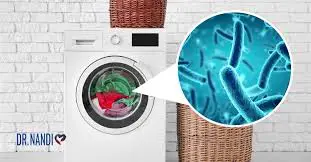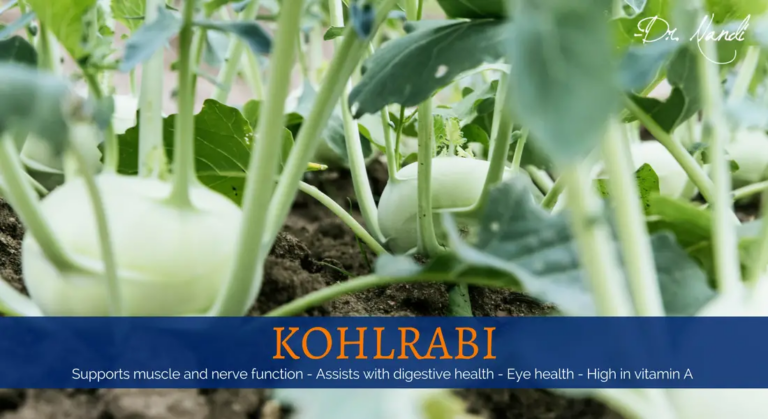This is a sponsored article on behalf of Seed. All opinions are my own.
Your body is home to a community of microorganisms that live in the gut. These diverse bacteria, fungi, viruses, and protozoa play many vital roles in the overall healthy functioning of the body. When this system of microbes is out of balance, however, you can be affected physically, mentally, and even emotionally. By understanding this ecosystem within your own body, you can better support it and take advantage of the health benefits it brings.
The Microbiome: A World Within You
The network of these microbes in your body is called the microbiome. Comprising trillions of microorganisms of over a thousand species, this community mostly lives in the intestine. Because the microbiome is an essential part of many functions throughout the body, a disruption in balance can have a cascading effect on overall health.
The microorganisms of the microbiome coexist in much the same way that individuals in a large city do. While each microbes living in the gut has its own identity and goal, they all work together to make the whole community work well. Additionally, like different cities worldwide, each person’s microbiome is distinct and unique, with various factors influencing their microbe population. (1)
What Are Microbes?
The residents of the microbiome community are made up of microbes. Microbes include bacteria, fungi, parasites, and viruses. Though some of these microbes are helpful and others potentially harmful, a healthy microbiome allows all these microorganisms to coexist and work symbiotically. The tasks performed by these microbes include:
- Creating essential vitamins.
- Helping to stimulate the immune system.
- Fighting some diseases.
- Breaking down food.
- Playing a role in regulating mood.
The diversity of microbes within this microbiome depends on many factors, including the microorganisms passed from mother to baby in the birth canal, breast milk, diet, and environmental exposures. When the microbe species within the gut are diversified, numerous, and outnumber harmful bacteria, the microbiome flourishes. Others may struggle with food sensitivities or gut problems due to an unbalancing of these bacteria. The good news is that the microbiome you are born with or acquire in early life can be impacted and diversified to increase your health. (1, 2)
How The Microbiome Affects The Body
The microbiome performs many vital functions that directly bear overall health. From functioning in the gut and digestive tract to influencing the brain, these powerful microorganisms have far-reaching effects on many systems in your body. Here, we’ll discuss a few main body areas that are most impacted by the microbiome.
- The Digestive Tract And Metabolism: Microbes live primarily in the gut, where they help break down food and nutrients. Many of their jobs are related to this. Bacteria help break down food and produce many different vitamins and essential amino acids. The food is then better able to be absorbed and used by the body for energy and support microbes.
- The Immune System: The goal is to have the good bacteria outnumber the bad, such as harmful pathogens. By signaling the immune system using specific receptors, these good bacteria contribute to releasing white blood cells, cytokines, and protective peptides that protect the body from invaders.
- The Gut-Brain Axis: Neural, hormonal, and immunological signals connect the brain and the microbiome. They spread out between them, and they communicate with each other. This communication can flow both ways, allowing the brain to send messages to the gut. While research explores this connection, a correlation between stress and brain function with the microbiome has been shown. It means that mental and emotional health can be affected by the state of the microbiome. (3)
What Can Damage The Microbiome?
Maintaining a healthy balance of bacteria is essential for the body to function correctly. When good and bad bacteria are out of balance, the microbiome can become damaged. It affects many other body areas and can lead to various problems.
- Diet: From the time a person is born, their diet influences the microbiome. Whether breastfed or formula-fed, different bacterial species in the gut can be dominant. Research shows that an infant diet of human milk can create a more stable microbiome and stronger immune system. As the diet develops, eating processed foods lacking in nutrients (such as in the typical Western diet) can alter the microbiome and support the growth of bad microorganisms.
- Antibiotics: While antibiotics are sometimes necessary to fight infection, they can cause the death of good bacteria and the overgrowth of harmful bacteria. If not treated, this imbalance can result in poor health and affect the immune system function. (4)
- Over-consumption Of Sugar: The typical Western diet includes plenty of added sugar. It can negatively affect the microbiome, increasing inflammation and weakening the gut lining. It can lead to obesity and other metabolic syndromes. (5)
Supporting Your Microbiome
Keeping it healthy should be prioritized, considering how much the gut microbiome affects the entire body. There are many ways to support your microbiome easily, all of which can positively affect overall health and keep your gut functioning optimally.
- Diverse Diet Of Fruits and Vegetables: People who eat a lot of fruits and vegetables (of different kinds) can have a more diverse microbiome and keep bad bacteria from growing. The fiber plants contain feed good bacteria and act as a powerful prebiotic. (6)
- Prebiotics: Certain prebiotics are the food of microorganisms, which are fermented and digested by them to stimulate growth and activity. These are not digestible by humans and are usually made of some fiber. Taking a prebiotic, or eating prebiotic foods, can allow good bacteria to flourish. (7)
- Probiotics: Probiotics are living microorganisms that are meant to support the microbiome. They can contain different strains of good microorganisms and have different effects on the gut and body. They’re usually taken in capsule form, though fermented foods can sometimes be considered probiotics. They may contain naturally occurring bacteria. (7)
- Synbiotics: Synbiotics include pre and probiotics in the same capsule. Seed’s Daily Synbiotic, for example, is contained in a 2-in-1 nested capsule containing clinically and scientifically-studied bacterial strains. The capsule design also ensures that the probiotics are delivered to the gut without being killed by stomach acid. The probiotics can get work in supporting your microbiome, which can then support overall body health.
Sources:
-
- The Microbiome. (2020, May 01). Retrieved November 13, 2020, from https://www.hsph.harvard.edu/nutritionsource/microbiome/
- Quigley, E. (2013, September). Gut bacteria in health and disease. Retrieved November 13, 2020, from https://www.ncbi.nlm.nih.gov/pmc/articles/PMC3983973/
- Bull, M., & Plummer, N. (2014, December). Part 1: The Human Gut Microbiome in Health and Disease. Retrieved November 13, 2020, from https://www.ncbi.nlm.nih.gov/pmc/articles/PMC4566439/
- Hasan, N., & Yang, H. (2019, August 16). Factors affecting the composition of the gut microbiota and its modulation. Retrieved November 13, 2020, from https://www.ncbi.nlm.nih.gov/pmc/articles/PMC6699480/
- Satokari, R. (2020, May 8). High Intake of Sugar and the Balance between Pro- and Anti-Inflammatory Gut Bacteria. Retrieved November 13, 2020, from https://www.ncbi.nlm.nih.gov/pmc/articles/PMC7284805/
- Klinder A; Shen Q; Heppel S; Lovegrove JA; Rowland I; Tuohy KM; (n.d.). Impact of increasing fruit and vegetables and flavonoid intake on the human gut microbiota. Retrieved November 13, 2020, from https://pubmed.ncbi.nlm.nih.gov/26757793/
- Probiotics: What You Need To Know. (n.d.). Retrieved November 13, 2020, from https://www.nccih.nih.gov/health/probiotics-what-you-need-to-know





















